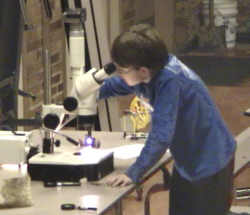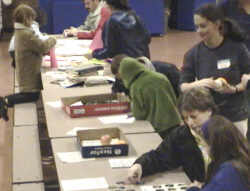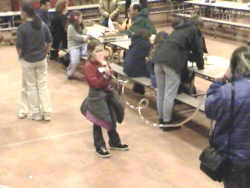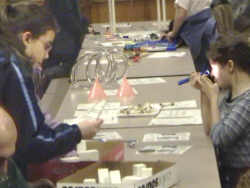|
It's more than discovery
of new facts;
It's also successful avoidance of "pseudoscience." It sidesteps self-deception -- those beliefs we accept without investigating whether they might be wrong. It avoids oversimplification -- the usual route to self-deception because we are prone to stop looking once we find even a hint that our wondrous desires might be for real. It succeeds by exercising some pretty good relevance/irrelevance filters, it recognizes systems of generating alternatives that expand our alternatives, it recognizes hidden kinds of impossibility so we more quickly seek more promising routes, and, starting with simple ratios, it gives us some of the impressive power of mathematics. |
of this theme: Wellness &
economic health
|
|
When understood (not just learned) science concepts (and the special insights that lead us to science concepts) reveal ways to do things that give us great powers to make things happen the way we want. |
Science fairs in the schools can get understanding to our society at an early age. Here is an opportunity to turn young people into magicians--that is, able to apply those principles which so often seem "beyond human powers." That's science. |



